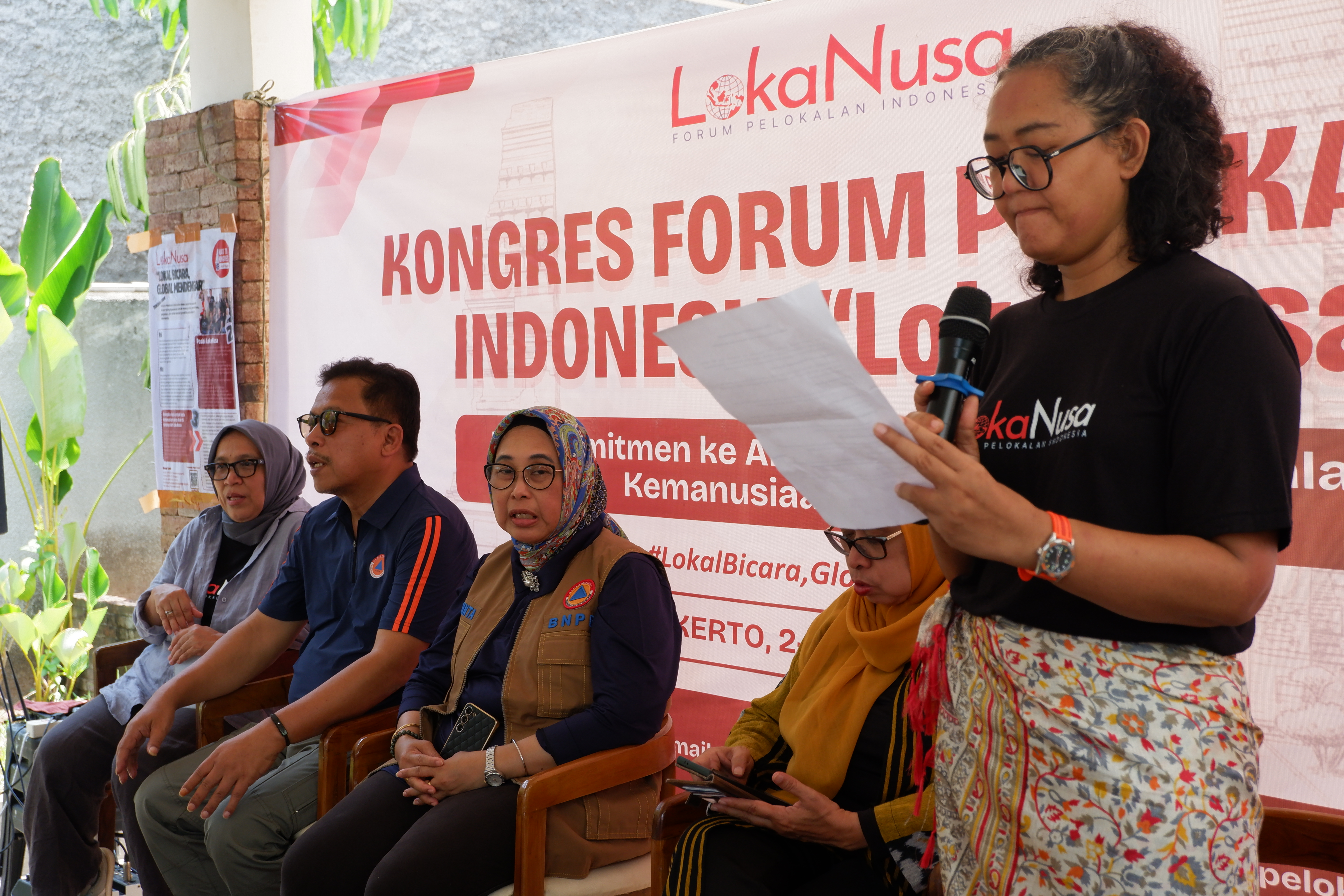After the first congress, the Localising Indonesia Forum (Forum Pelokalan Indonesia, LokaNusa) declared itself as a collective local humanity actors to strengthen position, capacity, and strategic roles in global humanity system on Friday (3/10).
By promoting “the Local Talks, the Global Listen”, LokaNusa stated that local communities and organisations were the vanguards in disaster response and humanitarian crisis. They were not only implementers, but also owners of contextual knowledge and social-cultural force that had been the bases for Indonesian communities’ resilience.
Vision and Mission of LokaNusa
LokaNusa dreamt of a more inclusive and just humanitarian ecosystem. The forum urged local actors to stand equally with national and international actors, and to become innovation centre in preparedness and emergency.
To arrive at that objective, LokaNusa developed a mission to unite local networks, to promote knowledge sharing, and to consolidate collective capacity. Its mission was also directed towards ensuring permanent, transparent partnership based on gender justice and inter-generational solidarity.
Localising: Global Agenda, National Challenge
In the congress discussion, a number of speakers emphasised the importance of localising global agenda present since 2015 and re-affirmed in World Humanitarian Conference in Geneva (2016).
“To date, local organisations were often positioned as sub-contractors, not strategic decision-makers,” said Rahmawati Husein, a humanitarian figure and board of AP-KI. Meanwhile, Drs. Pangarso Suryotomo from BNPB reminded people of the importance of just and transparent direct financing so that local organisations could become more independent.
The Grand Bargain 2.0 Movement declared in 2021 became a critical momentum. The initiative targeted 25% of direct global humanitarian funding given directly to local actors in 2026.
Collaborative Forum and Good Practices
LokaNusa would be expected to act as common platform to maintain accountability, build collaboration, and improve access to funding for local humanitarian organisations. The mechanism would allow for inter-organisation peer mentoring, the forum would also strengthen collective capacity, hence local actor would not act on their own.
In addition, the forum was committed to documenting local knowledge, developed long-term strategy, and prepared reports to affected communities.
Declaration on Seven Principles
In the same opportunity, congress participants read LokaNusa Declaration that articulated seven key principles:
- Acknowledgement and Recognition of Local Resources.
- Equal Partnership.
- Total accountability to survivors.
- Direct and speedy resource transfer.
- Two-way capacity building.
- Contextual advocacy based on actual context in Indonesia.
- Supports to community independence.
The declaration articulated the joint intention to build a more just, participatory humanitarian system based on local resources.
Towards Concrete Actions
The congress at Pesenkopi Plus, Mojokerto, closed with an urge for all participants to continue collaboration, to strengthen network, and to monitor implementation of localising principles up to the national and global level cooperation.
“LokaNusa is not just a forum, but also a joint movement. From Mojokerto, we send a message to the world: You must listen to, respect, and acknowledge the local voices as decisive in humanitarian future,” said one of the congress participant. (Vera)












